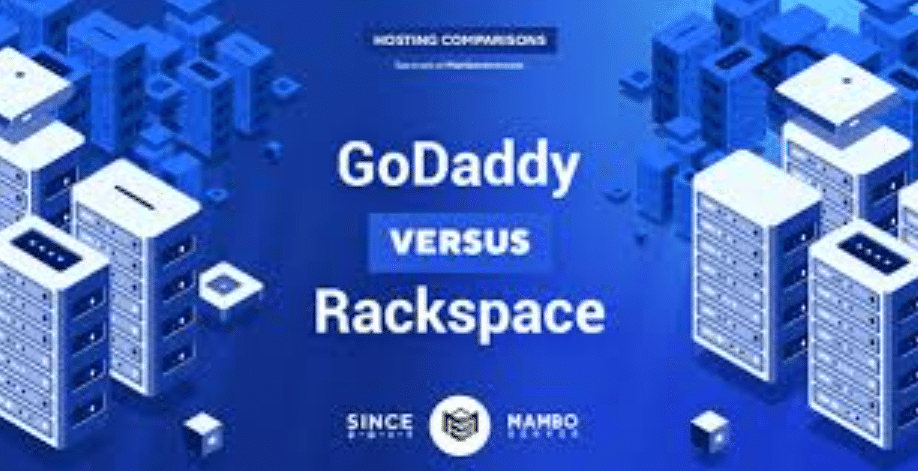GoDaddy Cloud Server – In today’s digital era, businesses are increasingly relying on cloud infrastructure to meet their growing needs for scalability, security, and reliability. Among the many providers in the market, GoDaddy, a name synonymous with domain registration and web hosting, has made significant strides in the cloud computing arena. The GoDaddy Cloud Server is a powerful solution designed for developers, entrepreneurs, and businesses seeking greater control and customization over their hosting environment.
This article explores the features, advantages, use cases, pricing, and overall performance of GoDaddy’s cloud server offering. Whether you’re a startup, a seasoned developer, or a growing enterprise, this guide will help you understand whether GoDaddy Cloud Server is the right fit for your needs.

What is a Cloud Server?
Before diving into GoDaddy’s solution specifically, it’s important to understand what a cloud server is.
A cloud server is a virtual server that runs in a cloud computing environment. Unlike traditional physical servers, cloud servers can be scaled easily, deployed rapidly, and managed remotely. They are ideal for hosting websites, applications, databases, and various online services due to their flexibility and cost-effectiveness.
Overview of GoDaddy Cloud Server
GoDaddy launched its cloud hosting services to meet the increasing demand for scalable and customizable hosting solutions. GoDaddy Cloud Servers are designed for developers and IT professionals who require root access, API support, and flexibility in managing their infrastructure.
Some of the standout features of GoDaddy Cloud Servers include:
-
On-demand scalability
-
Full root access
-
SSD-powered virtual machines
-
Global data centers
-
High uptime and reliability
-
Developer-friendly environment
-
Flexible billing models
Key Features of GoDaddy Cloud Servers
1. Instant Provisioning
GoDaddy Cloud Servers can be set up in minutes. Unlike traditional dedicated servers that may take hours or even days to configure, cloud instances on GoDaddy can be deployed almost instantly. This rapid deployment is crucial for developers who want to get started without delay.
2. Full Root Access
One of the primary advantages of GoDaddy Cloud Servers is that users get full root access to their virtual machines. This level of access allows for complete control over the server environment, enabling custom software installations, configuration changes, and advanced security setups.
3. Developer Tools and API Integration
GoDaddy provides a RESTful API that developers can use to automate server management tasks such as provisioning, backups, and monitoring. Additionally, the interface supports scripting and DevOps practices, making it ideal for continuous integration and deployment workflows.
4. High Performance with SSD Storage
All cloud instances are powered by solid-state drives (SSD), which significantly improve input/output operations and application speed. Compared to traditional hard drives, SSDs ensure faster loading times and better performance, especially under high traffic loads.
5. Global Data Center Locations
GoDaddy maintains multiple data centers across North America, Europe, and Asia. This global presence ensures that your cloud server can be placed closer to your end users, reducing latency and improving loading speeds.
6. Scalable Resources
With GoDaddy Cloud Servers, users can scale up or down based on their current needs. Whether you need more storage, memory, or CPU power, GoDaddy allows dynamic resource allocation without service interruptions.
Use Cases for GoDaddy Cloud Server
GoDaddy Cloud Servers cater to a variety of use cases. Here are some common applications:
1. Web Hosting
Whether you’re hosting a blog, corporate website, or an e-commerce store, GoDaddy’s cloud servers provide the flexibility and control needed to manage traffic, security, and performance.
2. App Development and Testing
Developers can use GoDaddy Cloud Servers to create isolated environments for developing and testing web and mobile applications. The availability of multiple OS templates (Linux distributions, Ubuntu, CentOS, etc.) further enhances this flexibility.
3. Database Hosting
Hosting databases such as MySQL, PostgreSQL, or MongoDB becomes seamless with cloud servers. The SSD storage ensures high read/write speeds, while root access enables performance tuning and advanced configurations.
4. Backup and Disaster Recovery
Cloud servers are ideal for creating redundant backups or disaster recovery systems. GoDaddy offers snapshot capabilities, making it easier to create restore points and minimize data loss in critical situations.
5. Gaming Servers
With high-performance specifications and full control, GoDaddy Cloud Servers are suitable for hosting multiplayer game servers that require low latency and high uptime.
Pricing and Plans
GoDaddy’s cloud hosting pricing is pay-as-you-go, which means you only pay for what you use. This model is particularly attractive for startups and developers who want to keep costs predictable and manageable.
While GoDaddy’s cloud solutions are competitively priced, they are also designed with transparency and simplicity in mind. There are no hidden fees, and users can customize their server specs according to budget and performance needs.
Here’s a simplified look at the pricing tiers (as of the last update):
| Plan | CPU | RAM | SSD | Monthly Price |
|---|---|---|---|---|
| Basic | 1 Core | 1 GB | 20 GB | ~$5/month |
| Standard | 2 Cores | 4 GB | 40 GB | ~$10/month |
| Advanced | 4 Cores | 8 GB | 80 GB | ~$20/month |
| Professional | 8 Cores | 16 GB | 160 GB | ~$40/month |
Note: Actual prices may vary depending on region, currency, and promotional offers.
Pros and Cons of GoDaddy Cloud Servers
✅ Pros
-
User-friendly dashboard for quick deployments
-
Global infrastructure for improved latency
-
Root access enables deep customization
-
Scalable resources to match business growth
-
Integrated API support for automation
-
Affordable entry pricing
❌ Cons
-
Limited compared to larger cloud providers like AWS or Azure in terms of advanced enterprise services
-
Lacks some specialized services (e.g., AI/ML tools, managed Kubernetes)
-
Technical support may vary depending on your service tier
GoDaddy Cloud vs Competitors
When compared with cloud giants like Amazon Web Services (AWS), Microsoft Azure, or Google Cloud Platform (GCP), GoDaddy offers a more beginner-friendly and cost-effective entry point. While it may not provide the vast range of services or enterprise-level integrations that its larger competitors offer, GoDaddy shines in terms of ease of use, speed of deployment, and price transparency.
For small to medium businesses, freelance developers, or agencies managing client websites, GoDaddy Cloud Servers can be an ideal choice. However, larger enterprises or applications requiring advanced infrastructure capabilities may still prefer providers like AWS or Azure.
Security and Compliance
Security is a cornerstone of any cloud solution. GoDaddy implements several layers of protection, including:
-
DDoS protection
-
Automatic backups
-
Server monitoring
-
Firewall configurations
-
SSH key authentication
While GoDaddy’s servers are secure by design, it is the user’s responsibility to implement application-level security. GoDaddy offers resources and best practices to guide users in securing their virtual environments.
Customer Support and Documentation
GoDaddy is known for its 24/7 customer support via phone and live chat. For developers, there is also a comprehensive knowledge base, community forums, and detailed documentation covering various cloud server configurations, API usage, and troubleshooting tips.
While the support is generally reliable, advanced users may prefer community-based support or third-party resources for deeper technical issues.
Conclusion: Is GoDaddy Cloud Server Right for You?
GoDaddy Cloud Servers represent a compelling choice for developers, startups, and businesses that need affordable, flexible, and easy-to-use cloud infrastructure. With instant provisioning, root access, and competitive pricing, GoDaddy makes it easy for users to deploy and manage their online applications without diving into overly complex configurations.
While it may lack some of the enterprise-grade features offered by major cloud providers, for most small-to-mid scale applications, GoDaddy delivers a solid and dependable performance. Whether you’re hosting a personal blog, an e-commerce store, or a software project, GoDaddy Cloud Server can provide the backbone your application needs.
Final Thoughts: As cloud computing becomes the new standard for modern IT infrastructure, GoDaddy’s cloud solution provides a great starting point. It combines the brand’s years of experience in hosting with the performance and scalability needed for today’s digital demands.

